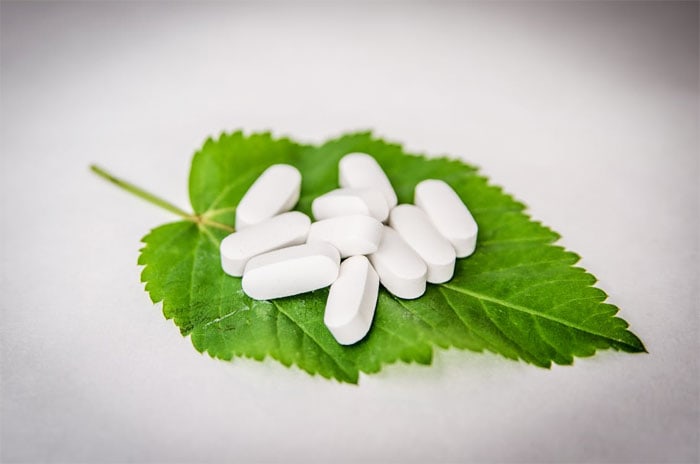
Written By: Sofia Layarda, MPH
Title: Master of Public Health
Alumni: University of California, Berkeley
Last Updated on:

Also known as nicotinic acid or Vitamin B3, niacin has been scrutinized in several research studies for its role in treating cholesterol problems when used in combination with a cholesterol drug (simvastatin). Specifically, niacin is shown to increase the level of HDL (“good” cholesterol) while lowering triglyceride and other non-HDL cholesterol levels. This is significant because the cholesterol drug simvastatin is used mostly to lower the LDL (“bad” cholesterol) without much impact on the other blood lipids.
Table of Contents
A study out of the Tufts Medical Center in Boston (published in the American Journal of Cardiovascular Drugs in 2008) found the niacin-plus-simvastatin combination (dosage 2000 mg niacin and 40 mg simvastatin) effective in lowering “bad” cholesterol and raising “good” cholesterol levels among patients who had been receiving statin-only therapy as well as those who were not on medication at the start of the study.

A double-blind, randomized, controlled study from the Baylor College of Medicine in Houston (published in the American Journal of Cardiology in 2008) reported on the effect of treating patients with high non-HDL cholesterol levels using either a simvastatin-only therapy or a niacin/simvastatin combination (containing 1000 mg or 2000 mg niacin, and 20 mg or 40 mg simvastatin). Compared with simvastatin-only therapy, the patients who received the combination therapy had statistically significant improvements in HDL (good) cholesterol, as well as triglycerides and lipoprotein levels.
While the existing research shows promise, more studies are still being conducted to evaluate the safety and efficacy of adding niacin to treatment regimens for high cholesterol problems. There are at least two large-scale, multi-site studies in progress that are investigating whether improvements in lipid profile due to this combination therapy will result in actual long-term reduction of cardiovascular risk when compared to simvastatin therapy alone.
Note that the dosage of niacin used in the treatment of cholesterol problems is much higher than what the average adult obtains from foods. The recommended daily intake of niacin ranges from 14 mg for an adult female (18 mg if pregnant) to 16 mg for an adult male, which is dramatically lower than the dosage used as therapy. Specifically, the niacin discussed here is a pharmaceutical form that can only be obtained by prescription, and is different from niacin sold as dietary supplements in stores. The niacin-plus-simvastatin combination is regulated as a prescription drug, while the niacin dietary supplements are not. If you have cholesterol problems, consult your doctor for appropriate treatment and do not self-medicate. We should also mention that many of the studies in this area are partially or wholly funded by the pharmaceutical industry, which is not unusual when a new therapy is being evaluated.
Several side effects of niacin have been identified, including flushing (the most common complaint), possible liver toxicity, hyperglycemia, gout, dizziness, itching, stomach upset, headache and back pain. The extended-release niacin used in the niacin-plus-simvastatin combination appears to be tolerated better than older formulations. Studies in progress will contribute further information in this area.
Alumni: University of California, Berkeley – Sofia believes in bringing back fun and pleasure into everyday eating. She loves cooking, and is constantly experimenting with ingredients, creating recipes and trying them out on family and friends. Her latest interest lies in finding realistic and practical ways of environmentally-friendly food/eating habits.
cholesterol, niacin, statin, vitamin b, vitamin b3
Discover Health Benefits of Some Unusual Foods From Around the World